
Jason Grissom, President
Vanderbilt University
Full bio
Jason A. Grissom is Patricia and Rodes Hart Professor of Public Policy and Education at Vanderbilt University’s Peabody College. He also serves as Faculty Director of the Tennessee Education Research Alliance (TERA), a research-policy-practice partnership between Vanderbilt and the Tennessee Department of Education that conducts, communicates, and engages stakeholders with research to inform Tennessee’s school improvement efforts. Dr. Grissom has published extensively at the intersection of K-12 education leadership and policy, with research spanning principal evaluation, principal preparation, the measurement of principal effects, the distribution of leadership quality across schools, the strategic management practices of effective principals, and the impacts of a racially and ethnically diverse principal workforce, among other topics. He also studies mobility among educators, including teachers, principals, and superintendents, and has coauthored a stream of studies on racial, ethnic, and socioeconomic disparities in access to gifted programs. His research has been supported by the Institute of Education Sciences, the Wallace Foundation, the Spencer Foundation, and the Bill and Melinda Gates Foundation. Dr. Grissom is past editor of Educational Researcher and currently serves as associate editor and policy brief editor for Education Finance and Policy. He holds a Master’s degree in Education and a PhD in Political Economics from Stanford University.

Katharine Strunk, Past President
Michigan State University
Full bio
Katharine O. Strunk is a professor of education policy and, by courtesy, economics, and the Clifford E. Erickson Distinguished Chair in Education and the faculty director of the Michigan State University Education Policy Innovation Collaborative (EPIC). Rooted in the fields of economics and public policy, Katharine’s work centers on structures that are central to district operations and policy and the ways these structures affect policymakers’ decisions and outcomes. Her current research through EPIC is focused on working with local and state education agencies on studies that will help them inform policy and practice. In addition, she studies three areas under the broad umbrella of K-12 education governance: teachers’ unions and the collective bargaining agreements they negotiate with school districts, teacher labor markets, and accountability policies.

Colin Chellman, President-Elect
City University of New York
Full bios
Colin Chellman is University Dean for Applied Research, Evaluation, and Data Analytics at the City University of New York (CUNY). In this role, he oversees several inter-related yet distinct units within CUNY’s Office of Academic Affairs (OAA) — the Office of Testing; Institutional Research; Policy Research; Evaluation and Program Support; and Data Management and Analytics – which together employ over 80 staff. These units – collectively known as the Office of Applied Research, Evaluation, and Data Analytics (OAREDA) — conduct a wide variety of analyses to guide policy and evaluate academic programs and administrative processes at CUNY. OAREDA collects, manages, and organizes survey and administrative data to support the analytic and reporting needs of the CUNY system and its 25 component institutions. OAREDA analysts turn data into information in pursuit of student success, equity, upward mobility, institutional stability, and academic excellence.
Currently, Dr. Chellman’s own analytic work focuses on post-graduate student outcomes and – with the support of the Mellon Foundation, the Institute of Education Sciences (IES), and the Heckscher Foundation – transfer student success and the transfer process at CUNY. Before taking the role of Dean, he was Associate Dean and the founding Director of CUNY’s Office of Policy Research. As director, he established many of the lines of inquiry pursued by the office today, including the development of input-adjusted performance metrics for CUNY colleges. And — with Gates Foundation and federal IES support — he pursued a joint research agenda on college readiness with the New York City Department of Education and the Research Alliance for New York City Schools.
His work has been published in Education Week as well as peer-reviewed journals such as Economics of Education Review, Education Finance and Policy, TCRecord, Urban Affairs Review, Educational Policy, Education and Urban Society, Housing Policy Debate, and the Journal of the American Planning Association. He currently serves on the Board of Advisors for the Community College Research Center at Teachers College, and, from 2013-2016, he served on the board of the Association for Education Finance and Policy (AEFP).
Before joining CUNY, he was a Research Scientist at New York University’s (NYU) Institute for Education and Social Policy; an adjunct professor at NYU teaching courses in public policy, financial management, and public finance; and Research Manager for the Council on Economic Priorities. In 2006, he was the recipient of AEFP’s New Scholar Award. He holds an M.P.A. and a Ph.D. in Public Policy and Finance from NYU’s Wagner School, and a B.A. in International Relations/Political Science from Johns Hopkins University.
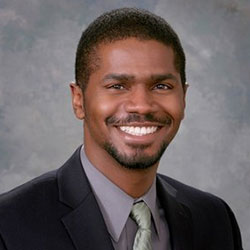
Richard Bowman, Finance Officer

Lydia Ross, Executive Director
Board of Directors
Terms Expiring at the close of the 2023 Conference
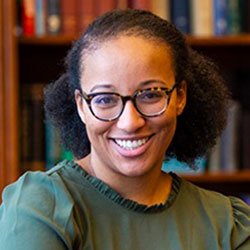
Dominique Baker
Southern Methodist University
Full bios
Dominique Baker is an Assistant Professor of Education Policy in the Annette Caldwell Simmons School of Education and Human Development at Southern Methodist University. Her research focuses on the way that education policy affects and shapes the access and success of minoritized students in higher education. She primarily investigates student financial aid, affirmative action and admissions policies, and policies that influence the ability to create an inclusive & equitable campus climate. Her work and expertise have been highlighted by the Atlantic, the New York Times, the Washington Post, National Public Radio, the Chronicle of Higher Education, and Inside Higher Ed, among others. Dr. Baker earned her Ph.D. in education policy from Vanderbilt University and her M.Ed. and B.A. from the University of Virginia.
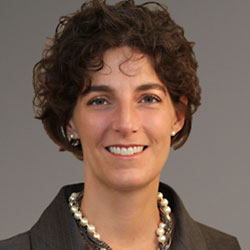
Lisa Barrow
Federal Reserve Bank of Chicago
Full bios
Lisa Barrow is currently working as a senior economist for the Council of Economic Advisors where she is involved in work on education issues from early childcare and education through postsecondary schooling. She is on loan from the Federal Reserve Bank of Chicago where she is a senior economist and economic advisor. She is also an affiliated researcher at the University of Chicago Consortium on School Research. Barrow’s research focuses on a variety of education issues, including the impact of attending a selective high school on student outcomes, a randomized evaluation of computer-aided algebra instruction in large urban school districts, and evaluations of performance-based scholarship impacts on academic outcomes and student time use at the college level. Barrow received a B.A. in economics from Carleton College and M.A. and Ph.D. degrees in economics from Princeton University.
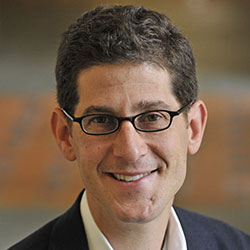
Brian Jacob
University of Michigan
Full bios
Brian A. Jacob is the Walter H. Annenberg Professor of Education Policy and Professor of Economics in the Gerald R. Ford School of Public Policy at the University of Michigan. His primary fields of interest are labor economics, program evaluation, and the economics of education. Jacob’s research on education covers a wide variety of topics from school choice to teacher labor markets to standards and accountability. His work has appeared in top economics journals including the American Economic Review, the Quarterly Journal of Economics, and the Review of Economics and Statistics. Earlier in his career, he served as a policy analyst in the NYC Mayor’s Office and taught middle school in East Harlem. He is also a research associate at the National Bureau of Economic Research, and a member of the editorial boards of the American Economic Journal: Applied Economics, Education Finance and Policy and the Review of Economics and Statistics. Jacob received his BA from Harvard College and his PhD from the University of Chicago. In 2008 he was awarded APPAM’s David N. Kershaw Prize for Distinguished Contributions to Public Policy by Age 40.
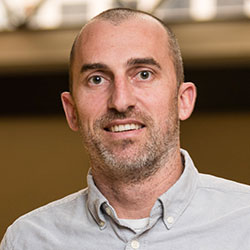
Andrew McEachin
NWEA
Full bios
I am the Director of the Collaborative for Student Growth at NWEA. I am also a Co-Editor of Educational Researcher, a member of the Board of Directors for the Association for Education Finance and Policy, and on the editorial boards American Educational Research Journal, Educational Evaluation and Policy Analysis, and Education Finance and Policy. I also teach courses on statistics and the economics of education at the USC Price School of Public Policy. The unifying goal of my research is to help policy-makers and educators make informed decisions about the design and implementation of educational policies and programs. My research agenda focuses on better understanding determinants of persistent educational inequities and inequalities, as well as evaluating policies and programs aimed at mitigating these inequities and inequalities. Current examples of these include school choice initiatives, student discipline policies, and curricular intensification.
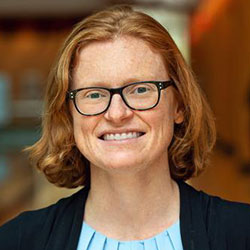
Christina Weiland
University of Michigan
Full bios
Christina Weiland is an associate professor at the School of Education at the University of Michigan and the Ford School of Public Policy (by courtesy). She co-directs the Education Policy Initiative (with Dr. Kevin Stange) and direct the University of Michigan’s Predoctoral Training Program. Her research focuses on the effects of early childhood interventions and public policies on children’s development, especially on children from families with low incomes. Her work is characterized by strong, long-standing research collaborations with practitioners, particularly the Boston Public Schools Department of Early Childhood. She holds an EdD (quantitative policy analysis in education) and a M.Ed. from the Harvard Graduate School of Education, and a BA from Dartmouth College.
Terms Expiring at the close of the 2024 Conference
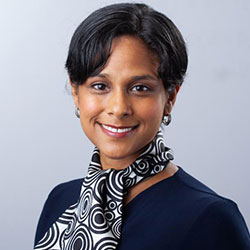
Anjali Adukia
University of Chicago
Full bios
Anjali Adukia is an assistant professor at the University of Chicago Harris School of Public Policy and the College. In her work, she is interested in understanding how to reduce inequalities such that children from historically disadvantaged backgrounds have equal opportunities to fully develop their potential. Her research is focused on understanding factors that motivate and shape behavior, preferences, attitudes, and educational decision-making, with a particular focus on early-life influences. She examines how the provision of basic needs—such as safety, health, justice, and representation—can increase school participation and improve child outcomes in developing contexts.

Li Feng
Texas State University
Full bios
Li Feng is a Professor of Economics in the Department of Finance and Economics at Texas State University. She is also currently a faculty research fellow with the LBJ Institute for STEM Education and Research. During 2016-2017, she served as a Visiting Scholar in the Center for Education Policy Analysis at Stanford University and a Visiting Fellow in the Brown Center on Education Policy Program at the Brookings Institution. She also worked on several different research projects as an adjunct economist with the RAND Corporation and an affiliated researcher with the National Center for Analysis of Longitudinal Data in Education Research. Her research has been funded by the National Science Foundation, the Institute of Education Sciences, the American Educational Research Association, and the National Academy of Sciences. She received her B.A. in International Economic Cooperation from Xi’an Foreign Language University in China, and her Ph.D. in Economics and Education Specialist in Education (Ed.S.) from Florida State University.

Tommaso Agasisti
Politecnico di Milano, Italy
Full bios
Tommaso Agasisti is Full Professor of Public Management at Politecnico di Milano, Italy – where he teaches “Data Analysis for Public Managers”. His research interests deal with various topics: (i) evaluating the efficiency and performance of schools and universities, (ii) studying the governance models for Higher Education institutions and systems, (iii) applying new theories and methods in the area of Learning Analytics, (iv) assessing the role of digital learning in innovating educational process, and (v) evaluating the effectiveness of financial literacy programs. He authored more than 100 publications, which appeared in international, peer-reviewed academic journals. Between 2016 and 2021, he served as Associate Editor of the academic journal Higher Education Quarterly; he currently participates to the Editorial Boards of journals like Educational Researcher, the International Journal of Educational Management, and Tertiary Education and Management. Since 2020, he is Associate Dean for International Relations at PoliMi GSOM – Graduate School of Management. Since 2019, he is member of the Governing Board of Politecnico di Milano. For 2021 and 2022, he is appointed in the Expert Group of the European Commission for Quality Investment in Education and Training. Since 2014, he is member of the Evaluation Committee of the Educational System in the Autonomous Province of Trento, Italy. Between 2010 and 2019, he sat in the Institutional Evaluation Committee of various public and private Italian universities.
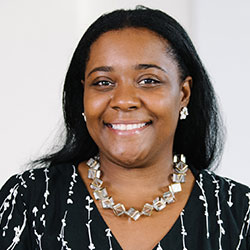
Constance Lindsay
University of North Carolina – Chapel Hill
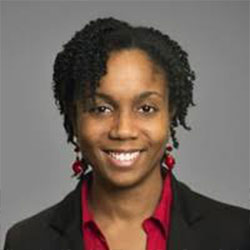
Shanna Ricketts
Gwinnet County Public Schools
Terms Expiring at the close of the 2025 Conference

Rachel Baker
University of Pennsylvania
Full bios
Rachel Baker is an associate professor of higher education at The University of Pennsylvania’s Graduate School of Education. In her research, she aims to increase access, persistence, and success in higher education for traditionally underserved groups. Rachel approaches this goal through two related lines of research: (a) understanding how various policies affect how college students make decisions about majors and transfer and (b) describing patterns of college enrollment by race and socio-economic status over time. She is on the editorial boards of Educational Evaluation and Policy Analysis and Research in Higher Education and serves as an associate editor at AERA Open. Her work has been supported by The National Science Foundation, The Spencer Foundation, and the Institute of Education Sciences. Rachel earned an MA in economics and a PhD in Education Policy from Stanford, has been an enthusiastic AEFP participant since 2013, and has served on the AEFP conference committee the past two years. Before getting involved in this research business, Rachel was an elementary school teacher.

Joshua Goodman
Boston University
Full bios
I’m an Associate Professor of Education and of Economics at Boston University, where I work on issues of labor economics and education policy. My research focuses on quasi-experimental estimation of the impacts of educational interventions, with particular focus on postsecondary and STEM education. My work has been published in peer-reviewed outlets such as the Quarterly Journal of Economics, the Journal of Labor Economics, and Education Finance and Policy. It has also been cited in multiple White House reports and featured by the New York Times, the Washington Post, and National Public Radio. I serve as co-editor of the Journal of Policy Analysis and Management and am a research fellow at the National Bureau of Economic Research. Prior to starting my Ph.D., I was a public high school math teacher in Watertown, MA. I have long participated in AEFP and consider it the most impressive community of scholars and practitioners devoted to rigorous evidence on education policy. I’d be honored to continue strengthening that community and making it even more supportive to both existing and prospective members.
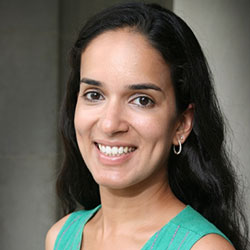
Ayesha Hashim
University of North Carolina at Chapel Hill
Full bios
Ayesha K. Hashim (she/her/hers) is an Assistant Professor of Educational Policy and Leadership at the University of North Carolina – Chapel Hill. Her research focuses on district-level school reforms aimed at improving student achievement, including popular initiatives to (1) modernize instruction with technology, (2) expand school choice, and (3) improve human capital pipelines. A mixed-methods researcher, Dr. Hashim draws on theories from economics, sociology, and organizational change to study the impacts of reforms on teacher and student outcomes and surface leadership, organizational, and implementation conditions that inform reform success. Dr. Hashim’s work has been published in Education Finance and Policy, Economics of Education Review, Educational Evaluation and Policy Analysis, Computers and Education, American Journal of Education, and Peabody Journal of Education. She received the New Scholar Award in 2017 from the Association for Education Finance and Policy. Ayesha received her B.A. from Scripps College, Master’s in Public Policy and M.A. in Economics from the University of Southern California (USC), and her Ph.D. in Urban Education Policy from the Rossier School of Education at USC.

Krystafer Redden
Rhode Island Department of Education
Full bios
Krystafer Redden currently serves as the Associate Chief of Staff for System Transformation at the Rhode Island Department of Education. Prior to his current role, he served the department as a Transformation Specialist and as the COVID-19 Response Project Manager for Operations and Resources. Previously, he served the students of Rhode Island as a classroom teacher, teacher leader, and district administrator in Providence Public Schools, as well as an education policy fellow to Gov. Gina M. Raimondo. Before moving to Rhode Island, Krystafer worked in the Texas Legislature and served a gubernatorial appointment at the Texas Higher Education Coordinating Board. He holds dual bachelor’s degrees from the University of Houston, a master’s degree from Brown University, and a master’s degree from Rhode Island College; also, he is an alumnus of the Strategic Data Project Fellowship at the Center for Education Policy Research at Harvard University, as well as the IES Methods Program at the Center for Benefit-Cost Studies of Education at Teachers College, Columbia University. Raised by his single mother and sister, Krystafer is a fifth-generation Texan from a family of public-school educators; he currently lives in Providence, RI enjoying all the history, shoreline, and proximity that New England has to offer.
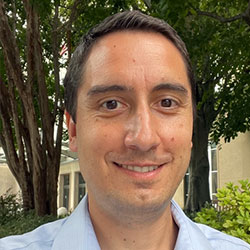
Jon Valant
Brookings Institute
Full bios
Jon Valant is a Senior Fellow in Governance Studies at the Brookings Institution and the Director of the Brown Center on Education Policy. He specializes in PK-12 education policy and politics. Much of his research examines inequities in U.S. schools and the policies that mitigate or exacerbate those inequities. This includes work on topics such as school choice, student discipline, and the barriers that keep families from accessing opportunities. He also studies the politics of education, examining issues related to public opinion, partisan politics, and the goals of public education. At Brookings, Jon helps to edit the Brown Center Chalkboard blog, which aims to improve the research and information available to decision-makers in education. He also works with local policymakers through research-practice partnerships in New Orleans and Washington, DC, and has virtually taught an education policy course at Stanford. His research has been published in a wide assortment of outlets, and he serves on the editorial boards of Educational Researcher and Educational Evaluation and Policy Analysis. His research and commentary has appeared in outlets such as The New York Times, The Economist, PBS NewsHour, and NPR. Jon holds a PhD (education) and MA (political science) from Stanford University, an MPP (public policy) from Harvard University, and an AB (philosophy / political science) from the University of Michigan.
Designees of Sustaining Members
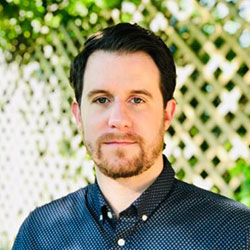
Kyle Arnone
American Federation of Teachers
Full bios
Kyle J. Arnone directs the Center for Collective Bargaining at the American Federation of Teachers (AFT). He and his team provide financial analysis of school districts, hospitals universities, and state and local governments and strategic insights in support of AFT state and local affiliates across the country. Prior to this role, he was the National Research Coordinator for the Kaiser Permanente labor-management partnership, where he provided research and negotiations in support of a national agreement that covered 130,000 healthcare workers, at the time one of the largest private-sector labor agreements in the world. He is an appointed member of the Board of Scientific Counselors of the National Institute of Occupational Safety and Health (NIOSH) for his survey work at the AFT examining the impact of teacher working conditions on stress, well-being, and retention. He lives in the Washington, D.C. area with his wife and two children.
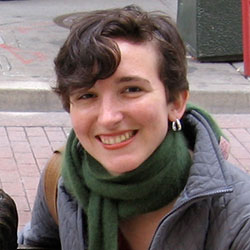
Tina Collins
United Federation of Teachers
Full bios
Dr. Christina Collins is Director of Research and Policy at the United Federation of Teachers’ Teacher Center. The UFT represents approximately 200,000 public school educators and other professionals in New York City, and the Teacher Center coordinates professional development for educators across the city. Dr. Collins holds a joint Ph.D. in History and Education and a graduate certificate in Urban Studies from the University of Pennsylvania, and has received fellowships from the Spencer Foundation, the Institute on Ethnicity, Culture and the Modern Experience at Rutgers University, and the Harvard Graduate School of Education. Her book on the history of the impact of institutional racism on ethnic and racial diversity among NYC teachers, Ethnically Qualified: Race, Merit, and the Selection of Urban Teachers, 1920-1980, was published by Teachers College Press in 2011. At the UFT, she has worked on issues such as school funding, school diversity and integration, charter schools, teacher leadership, evaluation, and professional learning, and state standards.
